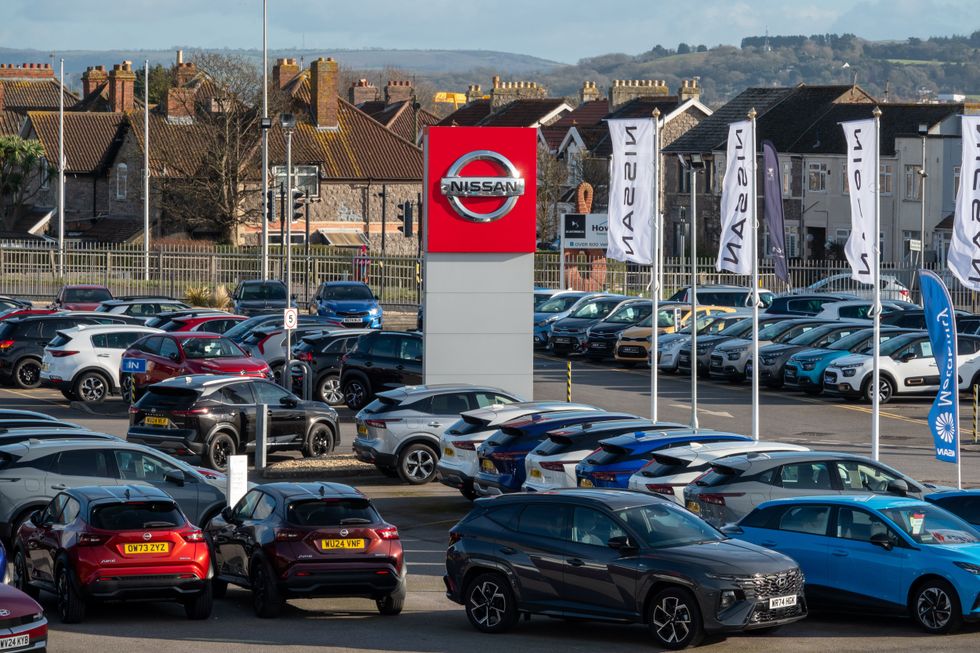WATCH: 'Move on!' Ed Miliband's electric car target brutally torn apart as 'mad'
GB NEWS
Almost 30,000 new electric cars were registered in January 2025
Don't Miss
Most Read
Trending on GB News
Experts have called for the Government to make urgent changes to support the adoption of electric vehicles, as drivers face hundreds of pounds of extra charges.
New data shows that electric vehicles had their best-ever January sales total in the first month of the year as more Britons transition away from petrol and diesel vehicles.
The latest statistics from the Society of Motor Manufacturers and Traders (SMMT) show that 29,634 new electric vehicles were registered in January, representing a healthy 21.3 per cent of the market share.
The positive electric car sales total was against a grim backdrop with the UK new car market dropping by 2.5 per cent to less than 140,000 units.
Do you have a story you'd like to share? Get in touch by emailingmotoring@gbnews.uk

Experts are calling on the Government to amend the terms of the Expensive Car Supplement
PA
Mike Hawes, chief executive of the SMMT, praised the growing demand for electric vehicles but noted that more needed to be done to accelerate uptake and move motorists away from vehicles with internal combustion engines.
He said: "The application, therefore, of the 'Expensive Car Supplement' to VED on electric vehicles is the wrong measure at the wrong time.
"Rather than penalising EV buyers, we should be taking every step to encourage more drivers to make the switch, helping meet Government, industry and societal climate change goals."
The Expensive Car Supplement, which is often referred to as the "luxury car tax", has remained unchanged since it was launched eight years ago, with new vehicles costing more than £40,000 needing to pay.
Drivers who buy expensive cars are required to pay £410 for the first five years from the start of the second licence, with many electric vehicles on the market coming in above this price point.
The SMMT noted that it was first introduced at a time when the overall market was 30 per cent larger than it is today, while electric vehicles also barely featured.
There were twice as many battery electric vehicles registered in January alone compared to the whole of 2017, resulting in calls for more to be done to support those wanting to buy more expensive electric vehicles.
In the Autumn Statement, the Government recognised the "disproportionate impact of the current VED Expensive Car Supplement threshold for those purchasing zero emission cars".
However, it stated that it would only consider raising the threshold for zero emission cars at a future fiscal event, rather than announcing it in October.
The next Budget from Chancellor Rachel Reeves will take place on March 26 with the Spring Statement, with many hopeful that new changes will be announced.
The SMMT claimed that private retail buyers "lack a meaningful incentive to buy an EV", with experts putting this down to the ECS.
Electric cars will also be required to start paying Vehicle Excise Duty from April 1, 2025, as announced by former Chancellor Jeremy Hunt during the 2022 Autumn Statement.
LATEST DEVELOPMENTS:

The Government said it may make changes to the ECS in the near future
GETTY
David Borland, EY UK and Ireland Automotive Leader, said: "Given many BEVs remain relatively expensive to buy, this could in turn further de-incentivise many consumers from making the switch to a BEV.
"Indeed, a reconsideration around the scale of this year’s ZEV Mandate target, and a rethink of how upcoming additional vehicle excise duty impacts BEV tax implications would be a welcome step forward for the UK’s automotive sector."








